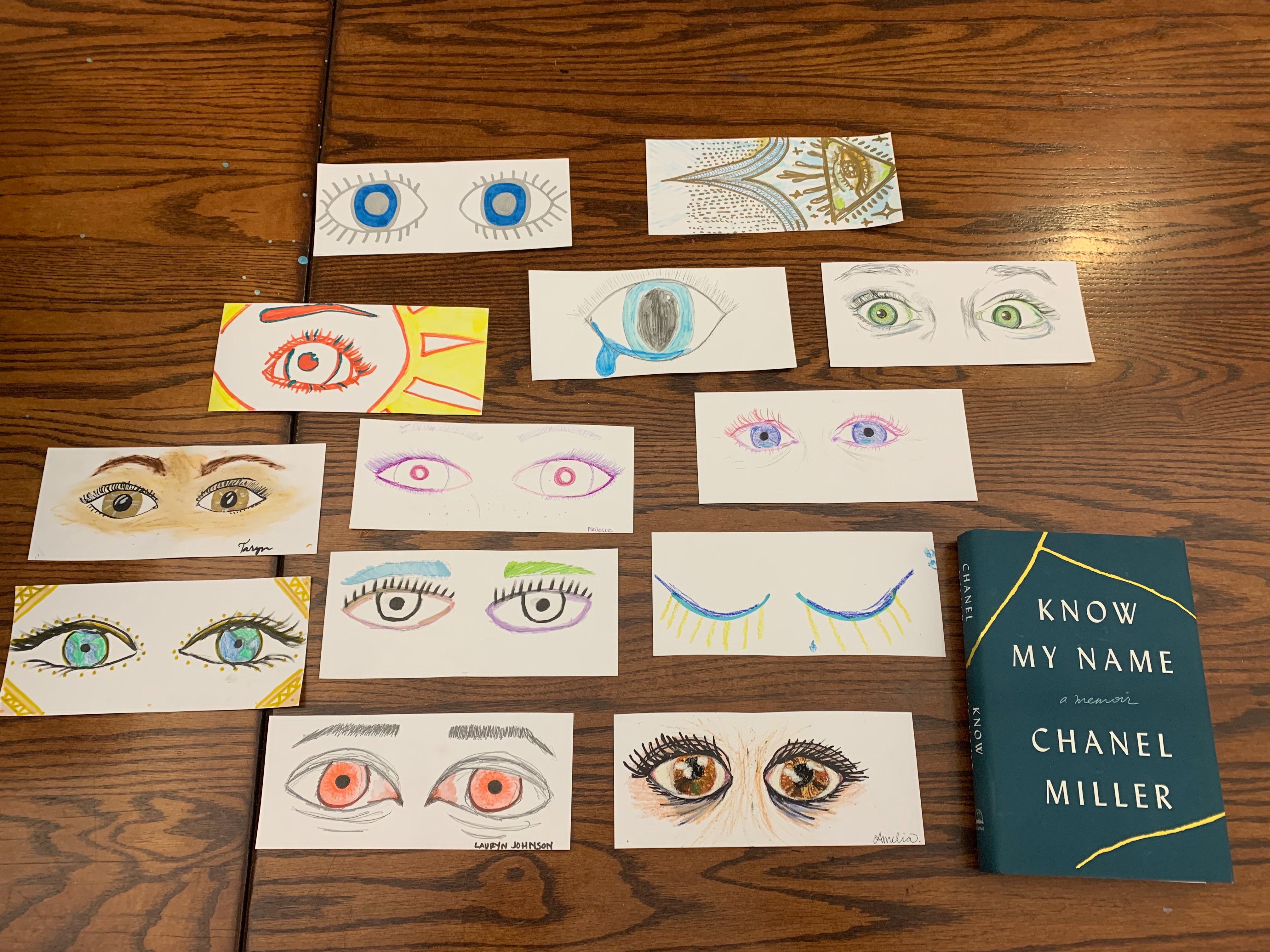Tuesday marked the final meeting of the three-part book club centering on Chanel Miller’s memoir “Know My Name.” The book club, started by Lauryn Johnson ’22, welcomed female-identifying people from across campus to engage in discussions, activities and an art project in order to learn more about sexual assault on college campuses and demonstrate support for Miller and other survivors.
“In this space, there is a common understanding that these are topics that are important and pressing,” said Natalie Longmire-Kulis ’22, a member who attended all three nights. She expressed gratitude for the community the book club cultivated.
“[This] community of individuals feel this is a relevant topic to be discussing,” she said.
Johnson emphasized community-building in the activities she planned. Discussions centered on topics such as victim-blaming, rape culture, intersectionality, mental illness and healing.
During one activity, womxn were asked to share one emotion they felt upon finishing the book. Anger, frustration and hope were some of the most common answers.
“My unfiltered word was closer to anger,” said Taryn Imamura ’20, who eventually chose the word ‘motivated’ to represent her feeling after finishing the book. “I want to redirect [anger] into something that can be constructive for the communities I am a part of.”
The first night of the book club included programming from the Office of Sexual Assault & Relationship Abuse Education & Response (SARA). The office highlighted their resources regarding upstanding to prevent sexual assault and supporting survivors.
“One person’s story can be a powerful connection to the stories of others,” said Grace Poon Ghaffari, SARA’s Assistant Director and Education & Outreach Manager, in a statement to The Daily on behalf of the office. “At the same time, every story is unique and deserves to be heard.”
In their statement, the SARA office also emphasized the importance of listening to and respecting the stories of survivors.
“This book can also encourage students to learn more about how to support survivors and create a culture of care on campus,” Poon said.
While each night of the event centered on a different facet of Miller’s book, there was a sustained emphasis on changing the campus culture of sexual assault through conversation and dialogue.
“[It’s important] to think about the implications of the book and what we can do going forward as people who have heard Chanel Miller’s voice,” Longmire-Kulis said.
Johnson dedicated the latter half of the final book club meeting to an interactive art project which will be displayed in White Plaza over the next couple weeks. Johnson was inspired by Miller’s discussion of art as a means for healing within her memoir and saw the project in White Plaza as a way to draw attention to the issue of sexual assault in one of Stanford’s most public spaces.
The project, one of two Johnson has planned, involved members each drawing a unique pair of eyes to be displayed with the words “We See You, We Know Your Name.” The second art display will follow an idea Miller lays out in her memoir and center on the experience of survivors through an interactive art exhibit.
“Art and trauma often have a difficult and tumultuous relationship,” Johnson said. “Chanel had the bravery to walk this fine line between the two and, in respect to her and other survivors, I think we should follow her footsteps on that same line.”
Members also reflected on the importance of hearing different perspectives on the memoir, citing the value of education within the book club. Longmire-Kulis reflected on the impact of consent signs outside student residences and social events and questioned their role.
“While the consent sign started as something good and important, its presence often presents [consent] as a barrier or obligation to obtain something,” she said. “We should think about how to start more intentional dialogues around what the consent sign actually means and what you are reading instead of just reciting.”
Johnson expressed hope that other dorms and houses would make space for similar conversations in order to spark dialogue about the book and issues of campus sexual assault.
“Having [these discussions] in one house, one year is not enough,” she said. “[We must] keep it going to all facets of the community and spaces on campus.”
Contact Brooke Beyer at bbeyer ‘at’ stanford.edu.
